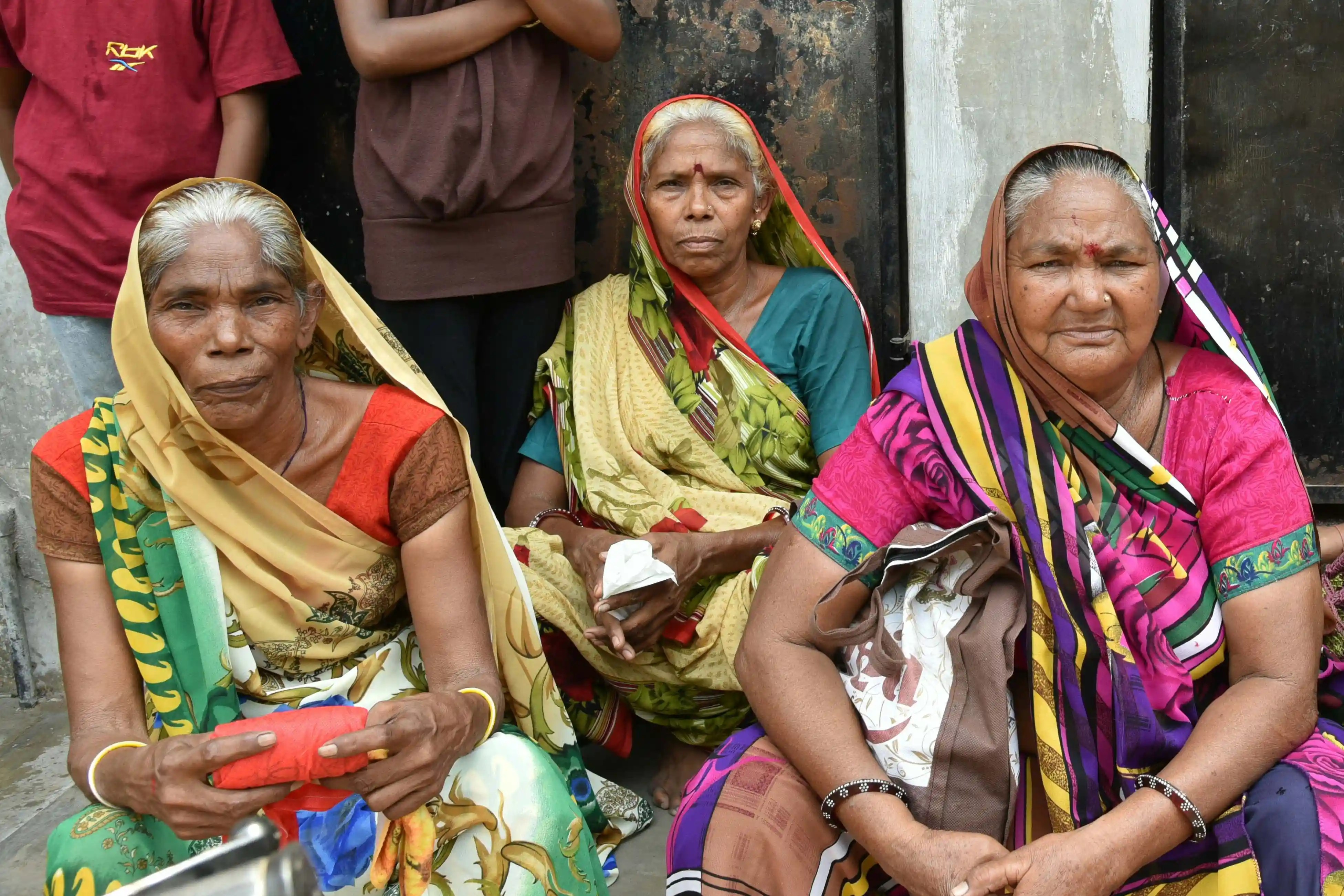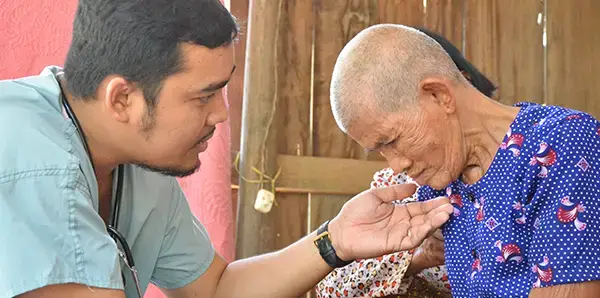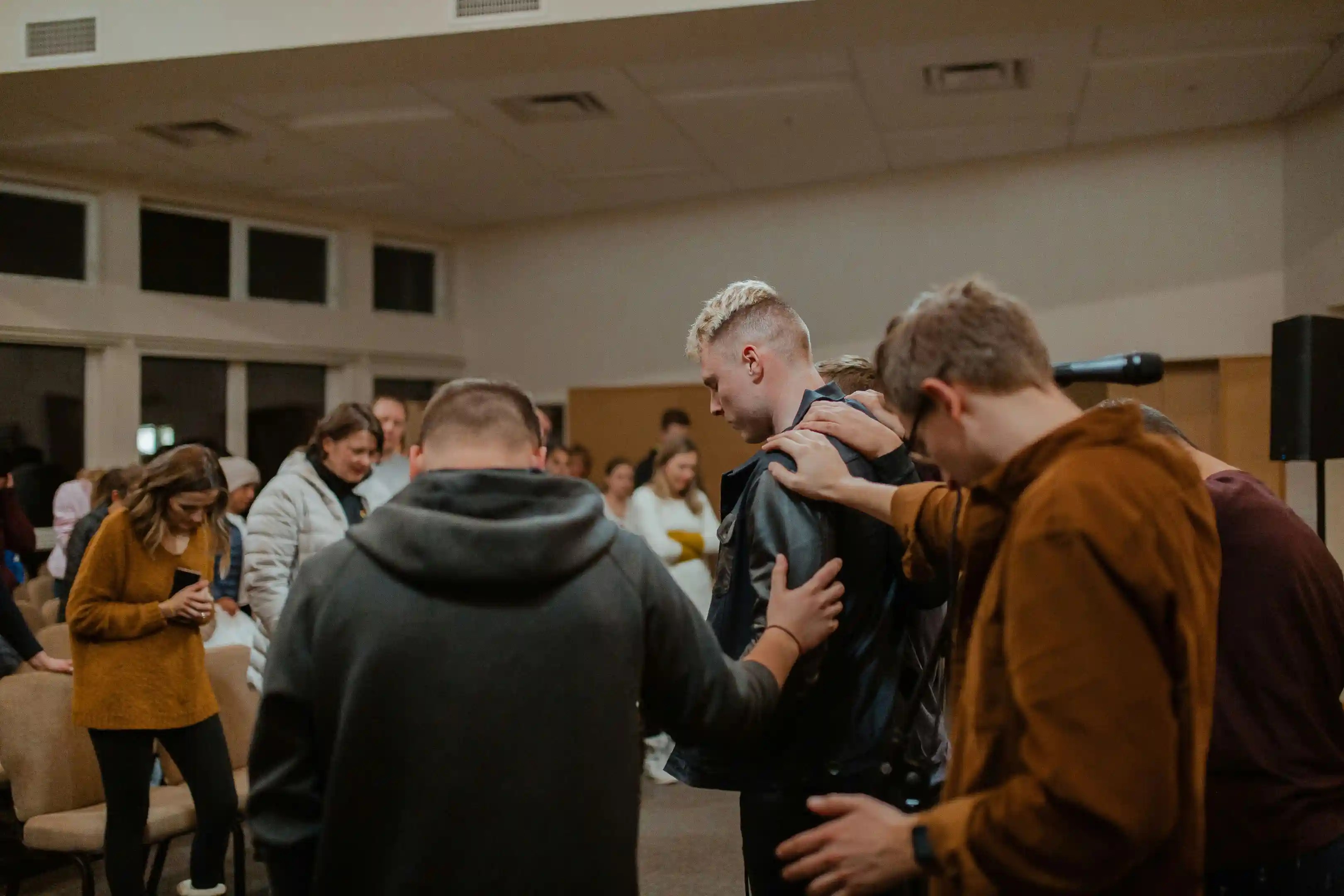5 Tips for Parents Raising Kids on the Mission Field

Keli G.* and her three-month-old daughter, Hannah, had been back in South Asia for a few weeks when Keli found a small bump on Hannah’s leg.
Keli, her husband, Richey, and their two older kids had been serving as MTW missionaries in South Asia for a little over a year. Due to a high-risk pregnancy, Keli went back to America for Hannah’s delivery and returned after Hannah’s three-month shots.
While the bump on Hannah’s leg didn’t appear to be anything serious, Keli was not taking any risks. She was still adjusting to life in a developing country. Access to the right healthcare was one of the main items she was trying to figure out.
She called her national pastor and asked him to drive her and Hannah to the hospital.
Hannah had a staph infection that had flowed into her blood stream and caused sepsis—a life- threatening diagnosis anywhere in the world.
Keli immediately contacted the doctor at MTW’s medical clinic in the U.S. who coached her through which questions to ask the doctors at the hospital in South Asia. Fortunately, they were able to treat Hannah in time.
Following God’s Call Through the Fear
For many prospective missionary couples, fear for their children’s health and safety is just the tip of the iceberg. The decision to follow God’s call to the mission field becomes even more daunting when parents consider their children’s emotional wellbeing, spiritual development, education, and socialization.
Yet there are countless testimonials from missionary parents and kids who genuinely love their global missions experience.
What is the secret to these success stories?
While there is no magic formula, three MTW missionary parents recently shared some practical advice and encouragements for families considering a call to missions.
1. Spend intentional time learning the new culture.
One of the biggest challenges missionary families face is the initial culture shock, particularly as it plays out in everyday life. Something as innocent as finding bug spray can turn into a half-day excursion—especially if you don’t speak the language.
Take some time as a family to learn and get excited about your new home.
“Richey wasn’t really supposed to work for the first six months other than just getting to know the culture. So, we did a lot of getting out together with our kids and just taking autos and going exploring,” said Keli.
Similarly, when MTW missionaries Bryan and Rebe McReynolds were preparing to serve in a small village in Madagascar, they began teaching their kids about the culture before they left.
The McReynolds viewed their move as one big discovery. They taught their kids about the different wildlife they were going to see; the creation they were going to explore; the food they were going to get to eat; and the people they were going to meet.
“Our energy was just tuned into where we were headed,” said Rebe. “It was not only something we were very interested in and learning about … we brought the children into that space to learn and get excited themselves about it.”
Adjusting to a new place takes time and effort. Embracing your family’s new home can foster excitement in your kids and turn the transition process into a fun family adventure.
2. Include your kids in the mission.
Involving your kids in the mission is one of the best things you can do to help your kids thrive on the mission field.
Regularly talk to them about God’s call for your family and the vision for your specific context.
“When we were in South Asia we told our kids that they were part of our team and we can’t do ministry without our kids,” said Keli. “Our kids understood that and were sold out for the mission.”
Give them some ownership of the mission by including them in the work.
MTW England missionary Valerie McAlpin said her kids have a role in their weekly ministry responsibilities. They help set out cookies and coffee before church, prep the house for their weekly student Bible studies, and participate in all the ministry functions.
According to Valerie, there is a mutual benefit for her kids and for the people they are serving.
“I’ve really been reminded recently how some people just miss being part of a family,” said Valerie. “As we welcome people in and have our kids just join in beside us, even if it’s just their presence or trying to get a game going, that is something they are giving to the church.”
Empower your children, regardless of age, by using and developing their gifts for ministry. By participating in the mission, they will not only find purpose and meaning in their role on the field but also will witness the remarkable ways in which God works in people’s lives. Through their involvement, your children can discover their unique place within God’s kingdom.
3. You have options for their education.
International school, homeschool, online school, public school, private school—these are just a few of the schooling routes missionaries have used for their kids’ education. The best option will vary from context to context, family to family, and sometimes from kid to kid.
Before they moved to England, Valerie and her family served in Plovdiv, Bulgaria. When she enrolled her oldest in a local public school, she didn’t know any Americans that sent their kids to a Bulgarian school. But she and her husband, Brett, thought it would help their kids learn the language.
The Bulgarian schools turned out to be a great fit for the McAlpins. It not only helped with language acquisition, but also accelerated the family’s acclimation process.
“Learning all the new cultural norms in a new country can be very challenging,” said Valerie. “A lot of it was our kids teaching me. Whether it was the language or learning about a national holiday in school … They could just really help me learn the cultural things that they were growing up in.”
You can also make a change if your first school choice isn’t a good match or your circumstances shift. While living in Madagascar, the McReynolds homeschooled and did online school depending on what each child needed at the time.
The school decision can be an overwhelming one for missionary parents. If you don’t know where to start, ask other missionaries about what they did for their kids. Research some of the resources available on different missionary care websites.
Take time to pray about the decision, keeping in mind that no choice is permanent.
4. Recognize the benefits.
It is easy to focus on the challenges, but there are some significant benefits to growing up on the field.
Both Valerie and the McReynolds said that their kids have a wide, vast view of the world. This broader perspective has led to a deeper comprehension of who God is, a stronger sense of their identity, and a global view of the Church.
Additionally, missionary kids often have a better grasp on the realities of poverty, suffering, death, diversity, and idolatry.
For example, Keli and Richey’s first apartment in South Asia was down the street from a Hindu temple and in front of a slum.
“There was a lot of opportunity for us to pray for those different people groups,” she said. “It pushed my kids to compassion and thoughtfulness.”
In the same vein, Bryan and Rebe mentioned that their kids can put certain values, belongings, and problems in their proper place after living in one of the poorest villages in Madagascar.
Besides the worldview benefits, there are some fun bonuses to living overseas. The McAlpin kids had the chance to explore different countries and travel to many historical sites and landmarks from their home base of Bulgaria.
Rebe also commented on the unique experiences her kids had during their time in Madagascar, such as swimming with sharks in the Indian Ocean and working as tour guides in the local rainforest.
It is difficult to summarize all the advantages that Keli, Valerie, and the McReynolds expressed. But after speaking with each missionary parent, it was clear that none of them would change their decision to serve as missionaries.
“I just look back on us taking our little kids overseas and I’m glad we did because it was the best experience we could have had for our family,” said Keli.
5. God will take care of them.
Unfortunately, it is impossible to completely shield your children from all the struggles they may face on the mission field.
When you feel fear creeping in, remember that God will take care of them.
Remind yourself that He has already demonstrated His care for you and your kids through Jesus’ loving, sacrificial death on the cross. And He has promised to be with and provide for His people as they carry out His mission.
“I remind myself every day that God cares more about my kids than I do,” said Valerie.
Whether it was sending an English-speaking teacher to the McAlpin family to teach the kids how to read in English and Bulgarian, providing opportunities for the isolated McReynolds children to build relationships with other missionary kids, or leading Keli to the right medical care in a developing country for Hannah’s dangerous staph infection, each missionary family experienced God’s care. They witnessed His provision in the minor details of everyday living and the major life transitions.
“God will take care of you. You know when you’re obedient that doesn’t mean it’s going to be easy. But I always knew that when we are being obedient to the Lord, that’s the safest place for our family to be,” said Keli.
*Last name and location omitted for security purposes
Resources From Our Member Care Department
MTW recognizes there are unique challenges parents face while raising kids on the field. Our member care department has compiled resources to support and equip future and current missionary parents.
Education Resources
Blogs and Websites
Books
- Setting Sail!: The Family Workbook by Dr. Emily G. Harvey
- Raising Resilient MKs: Resources for Caregivers, Parents, and Teachers by Joyce M. Bowers (editor)
- Third Culture Kids 3rd Edition: Growing Up Among Worlds by Ruth E. Van Reken
- Misunderstood: The Impact of Growing Up Overseas in the 21st Century by Tanya Crossman
- Belonging Everywhere and Nowhere: Insights into Counseling the Globally Mobile by Lois J. Bushong
- Raising Global Nomads: Parenting Abroad in an On-Demand World by Robin Pascoe








